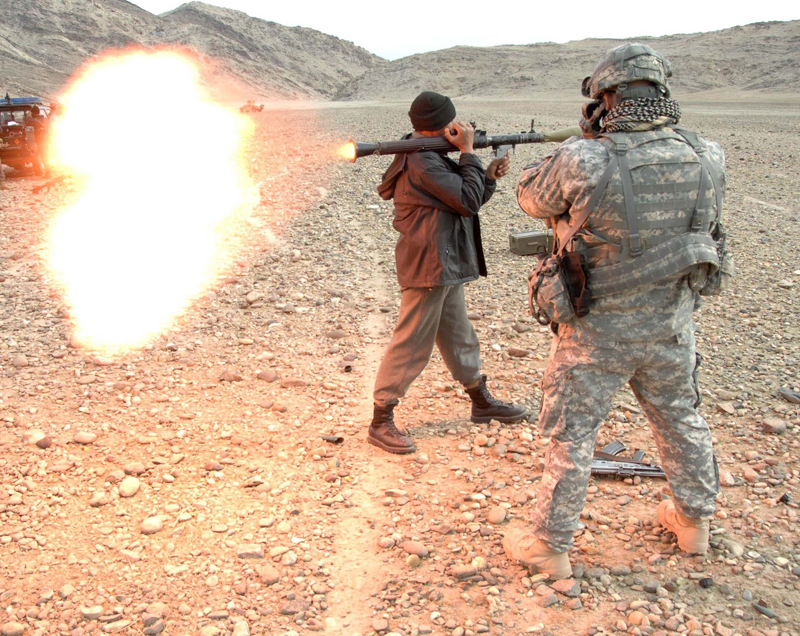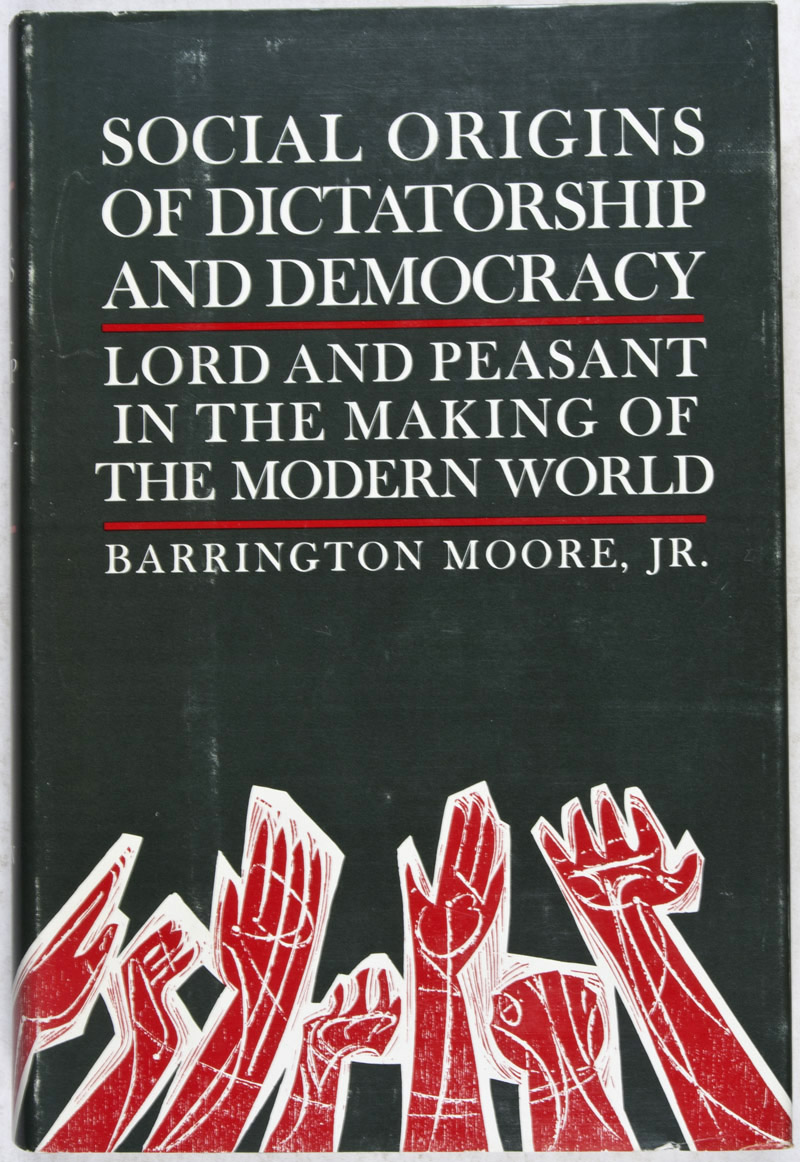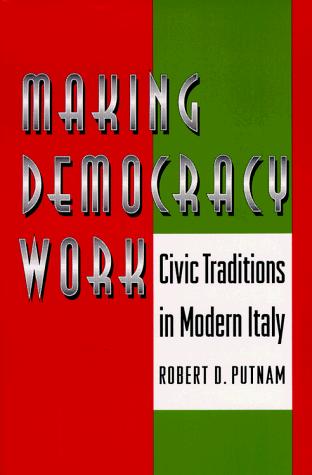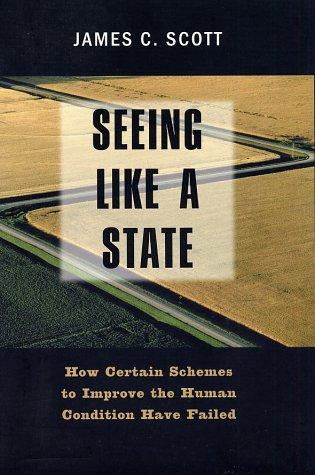Building a Better Afghanistan: An Analysis of Various Views On State Building in 2006
 Democratization is not something that can occur overnight. It must be cultivated by changes in the sociological underpinnings of the society in question. Afghanistan is the subject of a NATO mission designed to establish a liberal democracy. This article will outline what are the necessary conditions and factors for such state development. Taking valid points from many readings in this class, this article will focus on how they may be synthesized to develop a blueprint for democracy in Afghanistan. It will conclude that given the historical, geographic, and economic realities of Afghanistan, much of the research from this article will be difficult to reify. This does not mean that state building in impossible but even with most probable form of governance, Afghanistan will be a long-term project.
Democratization is not something that can occur overnight. It must be cultivated by changes in the sociological underpinnings of the society in question. Afghanistan is the subject of a NATO mission designed to establish a liberal democracy. This article will outline what are the necessary conditions and factors for such state development. Taking valid points from many readings in this class, this article will focus on how they may be synthesized to develop a blueprint for democracy in Afghanistan. It will conclude that given the historical, geographic, and economic realities of Afghanistan, much of the research from this article will be difficult to reify. This does not mean that state building in impossible but even with most probable form of governance, Afghanistan will be a long-term project.
 A salient presumption is that the most capable form of government is one which incorporates capitalist and democratic principles. These two pillars are central for state building in Afghanistan. Huber, Rueschemeyer and Stephens (HRS) analyse the causal mechanism that describes the relationship from capitalism to democracy in The Impact of Economic Development on Democracy. Their conclusion is that the primary source of capitalist and democracy development is not the result of the expansion of the middle classes but in the counter-balancing of the bourgeoisie with subordinate classes. Together play a role in democratization’s promotion[1]. Democracy requires, first, the power balance in civil society to be distinguished from the state. Secondly, class power to be shifted away from the landed elite. Thirdly, that the transnational structures of power, that is, the international economy and system of states, must be conducive for economic growth[2].
A salient presumption is that the most capable form of government is one which incorporates capitalist and democratic principles. These two pillars are central for state building in Afghanistan. Huber, Rueschemeyer and Stephens (HRS) analyse the causal mechanism that describes the relationship from capitalism to democracy in The Impact of Economic Development on Democracy. Their conclusion is that the primary source of capitalist and democracy development is not the result of the expansion of the middle classes but in the counter-balancing of the bourgeoisie with subordinate classes. Together play a role in democratization’s promotion[1]. Democracy requires, first, the power balance in civil society to be distinguished from the state. Secondly, class power to be shifted away from the landed elite. Thirdly, that the transnational structures of power, that is, the international economy and system of states, must be conducive for economic growth[2].
 For these three sociologists and others, capitalist development transforms the class structure, widening the working and middle class, and permitting democratization in state development. As noted, Barrington Moore’s 1966 study states that the existence of a powerful class of landlords is dependent on a large supply of cheap labour. As a consequence, in most cases, the landed upper classes were antagonistic towards the push for democracy. State autonomy from the bourgeoisie afforded external support democracy. This was not as apparent in South American countries[3]. Those nations were dependent on developers with imported technology; this resulted in a small industrial working class that was inimical to democratization. HRS notes that the landlords did not control the state in Central American and Caribbean countries such as Honduras, Nicaragua and the Dominican Republic. Thus autonomy between the states and the elite was substantial enough for democracy to develop[4]. In the Jamaican West Indies, plantation owners habitually called for the use of troops to put down labour unrest. Eventually, Britain allowed for the creation of unions and nationalist political parties based in the middle classes to become the “driving forces for internal democratization and decolonization”[5]. If civil society is more autonomous they will be less likely to be influenced by the Gaventa’s Third Face of Power. Afghanistan then must have autonomy from the political elite while also having economic prosperity.
For these three sociologists and others, capitalist development transforms the class structure, widening the working and middle class, and permitting democratization in state development. As noted, Barrington Moore’s 1966 study states that the existence of a powerful class of landlords is dependent on a large supply of cheap labour. As a consequence, in most cases, the landed upper classes were antagonistic towards the push for democracy. State autonomy from the bourgeoisie afforded external support democracy. This was not as apparent in South American countries[3]. Those nations were dependent on developers with imported technology; this resulted in a small industrial working class that was inimical to democratization. HRS notes that the landlords did not control the state in Central American and Caribbean countries such as Honduras, Nicaragua and the Dominican Republic. Thus autonomy between the states and the elite was substantial enough for democracy to develop[4]. In the Jamaican West Indies, plantation owners habitually called for the use of troops to put down labour unrest. Eventually, Britain allowed for the creation of unions and nationalist political parties based in the middle classes to become the “driving forces for internal democratization and decolonization”[5]. If civil society is more autonomous they will be less likely to be influenced by the Gaventa’s Third Face of Power. Afghanistan then must have autonomy from the political elite while also having economic prosperity.
 The importance of civic participation must be addressed in state building. Putnam’s Making Democracy Work which shows changing forms of government in Italy had little effect on democratic state development is a useful example in the discussion of Afghanistan. It is the civic participation that makes for strong state building necessary in Afghanistan. In this case, Putnam wanted to measure the civicness (interest in communities wellbeing) of 20 regions in Italy. He operationalized this variable using a complex series of measures to gather empirical data. Media percentages in subscription rates are an important measure of civic involvement and state building as even Chomsky and Herman must admit[6]. Electoral turnout is another variable that Afghanistan will need to maintain. Similarly in comparison to Afghanistan, Putnam asked why certain regions in Italy were so behind in modernization and civic participation? His results showed that the Northern regions of Italy are consistently ahead of southern Italians in political participation and civicness. Putnam found that “modernization is the powerful theory that explains democratic developments”[7], not simply a strong middle class. Putnam assumes that the quality of institutions relates to the societal demands, political interaction, government and policy choices.
The importance of civic participation must be addressed in state building. Putnam’s Making Democracy Work which shows changing forms of government in Italy had little effect on democratic state development is a useful example in the discussion of Afghanistan. It is the civic participation that makes for strong state building necessary in Afghanistan. In this case, Putnam wanted to measure the civicness (interest in communities wellbeing) of 20 regions in Italy. He operationalized this variable using a complex series of measures to gather empirical data. Media percentages in subscription rates are an important measure of civic involvement and state building as even Chomsky and Herman must admit[6]. Electoral turnout is another variable that Afghanistan will need to maintain. Similarly in comparison to Afghanistan, Putnam asked why certain regions in Italy were so behind in modernization and civic participation? His results showed that the Northern regions of Italy are consistently ahead of southern Italians in political participation and civicness. Putnam found that “modernization is the powerful theory that explains democratic developments”[7], not simply a strong middle class. Putnam assumes that the quality of institutions relates to the societal demands, political interaction, government and policy choices.
 State building is also shaped by perceptions of legitimacy. Putnam places high importance on civic engagement, political equality, solidarity, trust, tolerance and strong social associations. However, citizens of southern Italy (less civic regions) were more likely to feel exploited, alienated and powerless, according to Putnam. They do not believe in the merit of honesty and trust and consequently assume that everyone is breaking the rules. Simply put, if you believe everyone cheats than everyone will cheat[8]. The concept of citizenship is stunted in the south compared to the north because of this question of legitimacy; a factor of concern shared by Afghanistan. In the northern regions there are strong associations and more public engagement of issues. Putnam found in southern Italy a high degree of particularism in voting behaviour. This too is not good for civicness. Putnam observed that southern Italian regions like Puglia had a higher degree of personalized patronage, leading to less civicness as well. These findings suggest that Clientalism is rampant in uncivic areas of southern Italy[9]. Even while education levels are approxiamately equal, the stronger elitist hierarchical south makes populist grassroots civic engagement difficult. Afghanistan must develop the balanced social class structure that makes strong civic participation possible. Putnam goes on to show that political leaders in northern Italy are willing to compromise while the south is afraid of such compromise. Clearly, Afghanistan needs a strong civil society willing to compromise before significant democratic reforms can be realized.
State building is also shaped by perceptions of legitimacy. Putnam places high importance on civic engagement, political equality, solidarity, trust, tolerance and strong social associations. However, citizens of southern Italy (less civic regions) were more likely to feel exploited, alienated and powerless, according to Putnam. They do not believe in the merit of honesty and trust and consequently assume that everyone is breaking the rules. Simply put, if you believe everyone cheats than everyone will cheat[8]. The concept of citizenship is stunted in the south compared to the north because of this question of legitimacy; a factor of concern shared by Afghanistan. In the northern regions there are strong associations and more public engagement of issues. Putnam found in southern Italy a high degree of particularism in voting behaviour. This too is not good for civicness. Putnam observed that southern Italian regions like Puglia had a higher degree of personalized patronage, leading to less civicness as well. These findings suggest that Clientalism is rampant in uncivic areas of southern Italy[9]. Even while education levels are approxiamately equal, the stronger elitist hierarchical south makes populist grassroots civic engagement difficult. Afghanistan must develop the balanced social class structure that makes strong civic participation possible. Putnam goes on to show that political leaders in northern Italy are willing to compromise while the south is afraid of such compromise. Clearly, Afghanistan needs a strong civil society willing to compromise before significant democratic reforms can be realized.
 Another important factor that Afghanistan state building must take into account is historical context. Putnam discusses the salience of historic developmental differences between the north and south of Italy. Historically, civic traditions have existed in the north much longer[10]. However, economic development was not strongly correlated with civic traditions. In the 12th and 13th centuries, the north had more horizontal relationships and there was a relative equality among the citizenry. The north had guilds similar to unions that promoted competitive balancing of power that HRS outlined earlier. Instead, stark social hierarchies in southern Italy are shown to have a negative effect on democratic development. These vertical social relationships are not conducive to democratic development. “Socio-cultural factors are an important part of the explanation”[11]. Northern Italy’s rapid and sustained economic progress in the 1970s onward is accredited to international and technological environments much as HRS suggested. The international environment is important. Afghanistan will need strong international support for state building. Ultimately, Putnam concludes that civic society is related to institutional equality. The more egalitarian a society is the more conducive it is to civil participation. Civicness promotes institutional equality. Afghanistan must strive to end the feudal system of business that perpetuates such hierarchies.
Another important factor that Afghanistan state building must take into account is historical context. Putnam discusses the salience of historic developmental differences between the north and south of Italy. Historically, civic traditions have existed in the north much longer[10]. However, economic development was not strongly correlated with civic traditions. In the 12th and 13th centuries, the north had more horizontal relationships and there was a relative equality among the citizenry. The north had guilds similar to unions that promoted competitive balancing of power that HRS outlined earlier. Instead, stark social hierarchies in southern Italy are shown to have a negative effect on democratic development. These vertical social relationships are not conducive to democratic development. “Socio-cultural factors are an important part of the explanation”[11]. Northern Italy’s rapid and sustained economic progress in the 1970s onward is accredited to international and technological environments much as HRS suggested. The international environment is important. Afghanistan will need strong international support for state building. Ultimately, Putnam concludes that civic society is related to institutional equality. The more egalitarian a society is the more conducive it is to civil participation. Civicness promotes institutional equality. Afghanistan must strive to end the feudal system of business that perpetuates such hierarchies.
 Jared Diamond discusses this idea of egalitarianism further in Guns, Germs and Steel. He argues that small bands are the most egalitarian and simplistic organizations of civic community and says that many tribes also are equalitarian. However, as the civic organizations grow to the size of chiefdoms, there is a higher likelihood of kleptocratic politics which hinder an egalitarian state. For Jared Diamond, larger societies are effectively kleptocracies. The technology of irrigation becomes fundamental for large-scale state building[12] and these states concentrate their military power, seize larger and more productive territories and crush autonomous smaller groups one by one. Geography is a major focus of Diamond’s book. He suggests that Europe developed superiority over a centralized China because of competitive State building between various powers[13]. Clearly, Afghanistan will not have the advantage of developmental competition that state making usually requires.
Jared Diamond discusses this idea of egalitarianism further in Guns, Germs and Steel. He argues that small bands are the most egalitarian and simplistic organizations of civic community and says that many tribes also are equalitarian. However, as the civic organizations grow to the size of chiefdoms, there is a higher likelihood of kleptocratic politics which hinder an egalitarian state. For Jared Diamond, larger societies are effectively kleptocracies. The technology of irrigation becomes fundamental for large-scale state building[12] and these states concentrate their military power, seize larger and more productive territories and crush autonomous smaller groups one by one. Geography is a major focus of Diamond’s book. He suggests that Europe developed superiority over a centralized China because of competitive State building between various powers[13]. Clearly, Afghanistan will not have the advantage of developmental competition that state making usually requires.
Effective state building may also gain from Tilley’s analysis that ‘states make wars and wars make states’. For Tilley, war is a galvanizing tool that empowers states. The state has a monopoly on protection from external sources and uses power to achieve strategic ends. Following Diamonds logic, states appear to be the progression of conglomerating chiefdoms due to “economies of scale in the production of effective forces”[14]. The military then becomes a key factor in state building and Afghanistan will need external autonomy to create a military that will protect its people. Tilley also developed the idea of comparing states to organized crime and showed that internal and external state-making processes shaped European history. External competition between countries “generated internal state making”[15]. State-making required bureaucratization and gave Europeans the advantage of a framework for democratic institutions, according to Tilley[16]. An appropriate harnessing of societal actors in a bureaucracy is also crucial for Afghanistan.
 The Gorski reading on Disciplinary Revolution addresses another important factor of state-building: the accommodation of religion in the process. Many political scientists have attempted to argue that the Muslim faith is not compatible with liberal democratic state-building. Gorski focuses on Calvanism as a disciplined religion adding to the argument forwarded by Foucault about the discipline’s relationship with power. Within Islam, discipline is less salient however it still can be used to created a liberal democratic Muslim state. Fortunately, there is a common faith-based identity and values that Afghanistan can build on for state development. Therefore, an appropriate religious culture of the state organization is also a salient factor that Afghanistan has.
The Gorski reading on Disciplinary Revolution addresses another important factor of state-building: the accommodation of religion in the process. Many political scientists have attempted to argue that the Muslim faith is not compatible with liberal democratic state-building. Gorski focuses on Calvanism as a disciplined religion adding to the argument forwarded by Foucault about the discipline’s relationship with power. Within Islam, discipline is less salient however it still can be used to created a liberal democratic Muslim state. Fortunately, there is a common faith-based identity and values that Afghanistan can build on for state development. Therefore, an appropriate religious culture of the state organization is also a salient factor that Afghanistan has.
 James C. Scott’s Seeing Like A State shows that state action can be ineffective because state and local actors do not collaborate well and fail to share information, resources and knowledge needed for effective state building. High modernist ideas based on order and logic as suggested, for example, by Le Corbusier and Lenin fail in practice because human nature is organic and cannot be effectively planned by a central administration. In that 1930s, the Russian agricultural collectivization demanded for industrial development[17] had a negative consequence causing the death of some 20 million Ukrainians. It then follows that there must be a balance between command-economy state planning and free-market state building. Democracy keeps state officials from distancing themselves too much from civil society which must be respected in any major undertaking of state building.
James C. Scott’s Seeing Like A State shows that state action can be ineffective because state and local actors do not collaborate well and fail to share information, resources and knowledge needed for effective state building. High modernist ideas based on order and logic as suggested, for example, by Le Corbusier and Lenin fail in practice because human nature is organic and cannot be effectively planned by a central administration. In that 1930s, the Russian agricultural collectivization demanded for industrial development[17] had a negative consequence causing the death of some 20 million Ukrainians. It then follows that there must be a balance between command-economy state planning and free-market state building. Democracy keeps state officials from distancing themselves too much from civil society which must be respected in any major undertaking of state building.
Lange and Rueschemeyer in States and Development argue that the state may moderate socioeconomic development and paradoxically weaken market resistance[18]. For Lange, states become handmaidens of economic growth[19] and a fine balance must exist. Polany argues that without the state an unfetted capitalism “would have destroyed man and transformed his surroundings into a wilderness” (3, Polany: The Great Transition, 1957). As a recurring theme in this class, bureaucratization seems to be important in establishing both autonomy and maintaining state action. In some cases, import-substitution industrialization (ISI) helped establish economies. Taiwan and South Korea made the leap from nonindustrial to industrialized economies in a matter of decades[20]. This same principle could be utilized in Afghanistan. The United States propped up South Korea and Taiwan in an attempt to prevent the communist expansion during the Cold War, according to Koo. Like Afghanistan, the Unites States and the Western community will need to inject economic growth to prevent a Taliban resurgence. However, for HRS, further economic dependence further meant high vulnerability to international markets. The resulting economic instability made stabilization and legitimization of regimes difficult whether those regimes were authoritarian or democratic. A stable economy requires new production of valued goods from Afghanistan. This may seem insurmountable at present.
 Evans and Rauch’s Bureaucracy and Growth: A Cross-National Analysis of the Effects of Webrian State Structures on Economic Growth argues that bureaucracy is a positive force in state building. Bureaucracy limits corruption and advances the “disciplinary revolution, hierarchical structure, paper trail and promote supervision of people”[21]. Tenure-ship, education and meritocracy all help to create a strong state and a reliable government that facilitates economic investment. Bureaucracy is strongly related to economic expansion despite empirical tests of multivariate relationships. The causal relationship was at .67, this indicates there was no source of spuriousness[22]. Obviously, the Taliban in Afghanistan are not interested in allowing a bureaucratic system to develop and will continue to bomb strategic locations.
Evans and Rauch’s Bureaucracy and Growth: A Cross-National Analysis of the Effects of Webrian State Structures on Economic Growth argues that bureaucracy is a positive force in state building. Bureaucracy limits corruption and advances the “disciplinary revolution, hierarchical structure, paper trail and promote supervision of people”[21]. Tenure-ship, education and meritocracy all help to create a strong state and a reliable government that facilitates economic investment. Bureaucracy is strongly related to economic expansion despite empirical tests of multivariate relationships. The causal relationship was at .67, this indicates there was no source of spuriousness[22]. Obviously, the Taliban in Afghanistan are not interested in allowing a bureaucratic system to develop and will continue to bomb strategic locations.
To recap, the key factors outlined above are all necessary for state building. A meritocratic bureaucracy, international support, balance between state planned and free market development, religious cohesion and an independent military are one set of conditions for Afghanistan’s development. A generally egalitarian society, legitimate state, civic participation, free media, open elections and free active associations are another necessary cluster of conditions. In addition, autonomy from the bourgeoisie and a balanced class structure are also salient elements in state building.
 Implicit in all of these conditions is the acceptance that Afghanistan must become a liberal democratic nation with the two central pillars of capitalism and democracy at its core. Some of the key factors in state building are at odds with the realities of Afghanistan. The characteristic of the society in which the embedded government operates is the ultimate problem for Afghanistan. State building takes a long time to develop. Historical prerequisites are simply not present in Afghanistan, civil society is under developed and a vibrant economy is far from apparent. International support is implicitly necessary for any development in Afghanistan without which none of these factors would be possible. Ultimately, international intervention may make several conditions difficult because they are being imposed by an external entity and not from within the Afghan society. Without promising an instant solution, we must admit that the development of a strong liberal democracy is likely to require long-term development.
Implicit in all of these conditions is the acceptance that Afghanistan must become a liberal democratic nation with the two central pillars of capitalism and democracy at its core. Some of the key factors in state building are at odds with the realities of Afghanistan. The characteristic of the society in which the embedded government operates is the ultimate problem for Afghanistan. State building takes a long time to develop. Historical prerequisites are simply not present in Afghanistan, civil society is under developed and a vibrant economy is far from apparent. International support is implicitly necessary for any development in Afghanistan without which none of these factors would be possible. Ultimately, international intervention may make several conditions difficult because they are being imposed by an external entity and not from within the Afghan society. Without promising an instant solution, we must admit that the development of a strong liberal democracy is likely to require long-term development.
- [1] Huber et al, 73
- [2] Huber et al, 74
- [3] Ibid, 76
- [4] Ibid, 80
- [5] Ibid, 80
- [6] Chomsky and Herman are concerned with liberal capitalist America and the state’s manipulation of civic society through media.
- [7] Putnam, 84
- [8] Ibid, 111
- [9] Putnam, 100
- [10] Ibid, 151
- [11] Ibid, 159
- [12] Diamond, 284
- [13] November 1st, Lange
- [14] Tilley, 177
- [15] Tilley, 185
- [16] November 6th, Lange
- [17] Scott, 195
- [18] Lange and Rueschemeyer, 3
- [19] Ibid, 12
- [20] Ibid, 17
- [21] Evans and Rauch, 751
- [22] Ibid, 755
